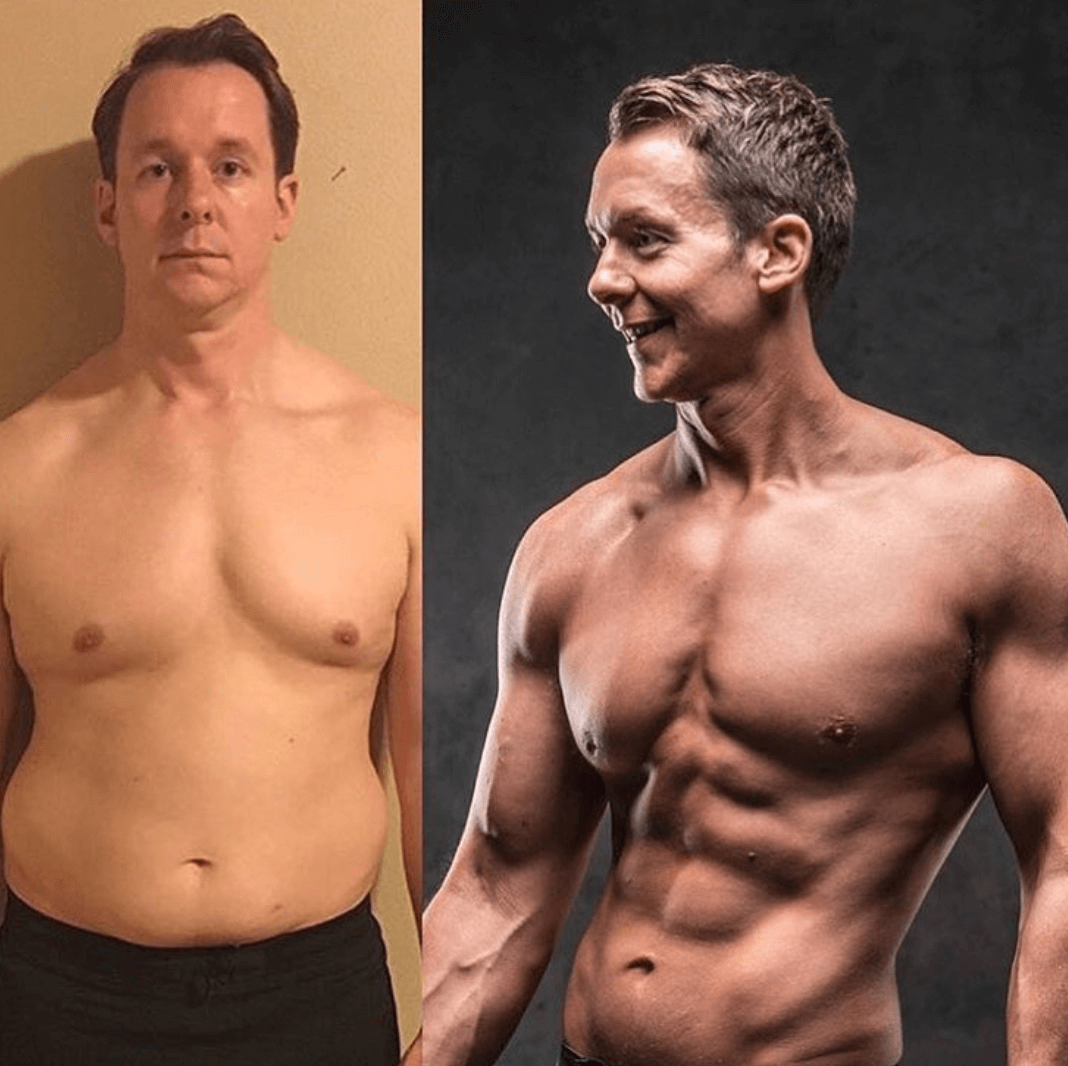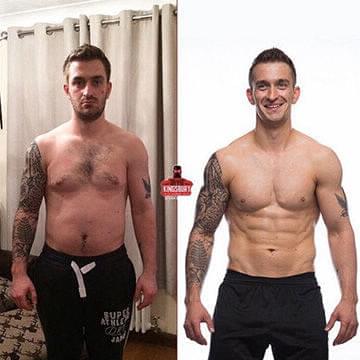Testosterone is a hormone that has a huge number of positive benefits. It’s also produced naturally by the body, in men and women alike. More testosterone makes it easier to build muscle. It affects your mood, raising confidence, reducing anxiety, and makes you feel younger, more energised, and more motivated. It also boosts your libido. It supports your health, helps reduce body fat, improves heart function, and improves bone strength.
While testosterone is essential to the maintenance of health and fitness in men and women, studies have shown that testosterone levels in men have been in decline for decades. A study published in the Journal of Clinical Endocrinology & Metabolism, covering the time period 1987 to 2004, looked at testosterone levels, or T levels, in over 1500 men between the ages of 45 and 79, living in Boston in the USA[1]. Even accounting for factors like smoking and body weight, they found that testosterone levels have been dropping in men by just over 1% per year. This means that a 50-year-old man in 2004 had, on average, almost 20% less testosterone than a similarly healthy 50-year-old man in 1984.
The story doesn’t end there. As time has gone on, men have become, on average, more overweight, which also reduces T levels. Plus people smoke less now, and smoking actually boosts testosterone levels, though of course it also comes with a mountain of negative health side effects. So men have been dropping in testosterone by a little more than 1% each year.
It’s not just in the US that this trend has been noticed. A Danish study over the time period 1982 to 2001 found a similar trend in over 5300 men[2]. However, while this study has been picked up by a number of websites as further evidence of generational testosterone decline, the authors of this study admitted that when you account for increasing body weight in men over time, the decline in testosterone is much less pronounced. By contrast, a similar study in Finland of over 3200 men showed a whopping 1.5% decline per year, meaning that if you’re a Finnish man and your father is 25 years older than you, your testosterone levels are probably more than 30% lower than his was at the same age[3].
While the focus of these studies has been on men, testosterone does play an important role in women. However, there do not appear to be any long term studies into testosterone levels in women, plus studies investigating testosterone levels are, unsurprisingly, typically male focused.
Why is testosterone dropping in men? The authors of the American study couldn’t be sure, but they suggested it was down to some previously undocumented environmental or behavioural change in men over time. Exposure to pesticides and some common household chemicals may be the culprit, as these can reduce testosterone levels. However, it seems likely that a changing work environment and lifestyle has had the biggest effect.
Physical exercise, such as lifting weights or manual labour, boosts testosterone. Over time, the typical work that men do for a living has changed. There has been a slow and steady shift from manual labour jobs to office jobs. Work hours have also reduced, with men working on average 20% fewer hours than they did 60 years ago. As a consequence, most men are less active, so naturally produce less testosterone.
Stress is also on the rise, with studies showing a stark increase in stress levels from the 1990s to the 2010s, especially amongst middle aged adults[4]. The stress hormone cortisol competes in the body with testosterone. This increased stress could help explain the reduction in testosterone in adult men. Lifestyle has also changed among middle aged men, with many choosing to spend more time with children and the family than in previous generations. Spending time with family has been shown to starkly reduce testosterone levels, especially so when looking after young children[5].
Should you be concerned about your own testosterone level? Testosterone, like all hormones in the body, should be present in a balance. An excessively low testosterone level can increase your chances of developing a heart condition, or osteoporosis, an ailment that can result in brittle bones. It can also impair your ability to build muscle mass, which is a problem if you’re trying to get lean.
Medical interventions that you can undergo to boost testosterone levels are available, but there are a number of relatively simple everyday things you can do to promote natural testosterone production instead. I’ll be going through the science behind these life hacks in a later article, but here’s the main things you can do:
Get into a good sleep pattern. Go to bed and get up at the same time each day, and avoid lights late at night, especially in the middle of the night.
Get outside, especially in the winter months, and ideally every morning not long after waking up, as this kicks your body into action for the day and improves circadian patterns.
Try to avoid stressful situations, or if that isn’t possible, practise relaxation techniques to calm yourself and reduce stress levels.
Get in regular exercise, but you don’t need to overdo it. Lifting weights is great, but any relatively high intensity activity is best for testosterone levels.
Eat healthily, try to avoid sugars, include fats in your diet (in moderation), and if you are currently a bit overweight, make an extra effort to lose a few kilos.
Supplementation is also a good option for some people. The best options are zinc, vitamin D, and magnesium, though please don’t exceed the recommended dosage.
If you follow these simple steps, you’ll have gone a long way to boosting your testosterone levels naturally, which will make it easier to build muscle and lose fat. Combine it with a workout regime aimed at building muscle, and you’ll find you’ll get better results, and feel better in the process.










